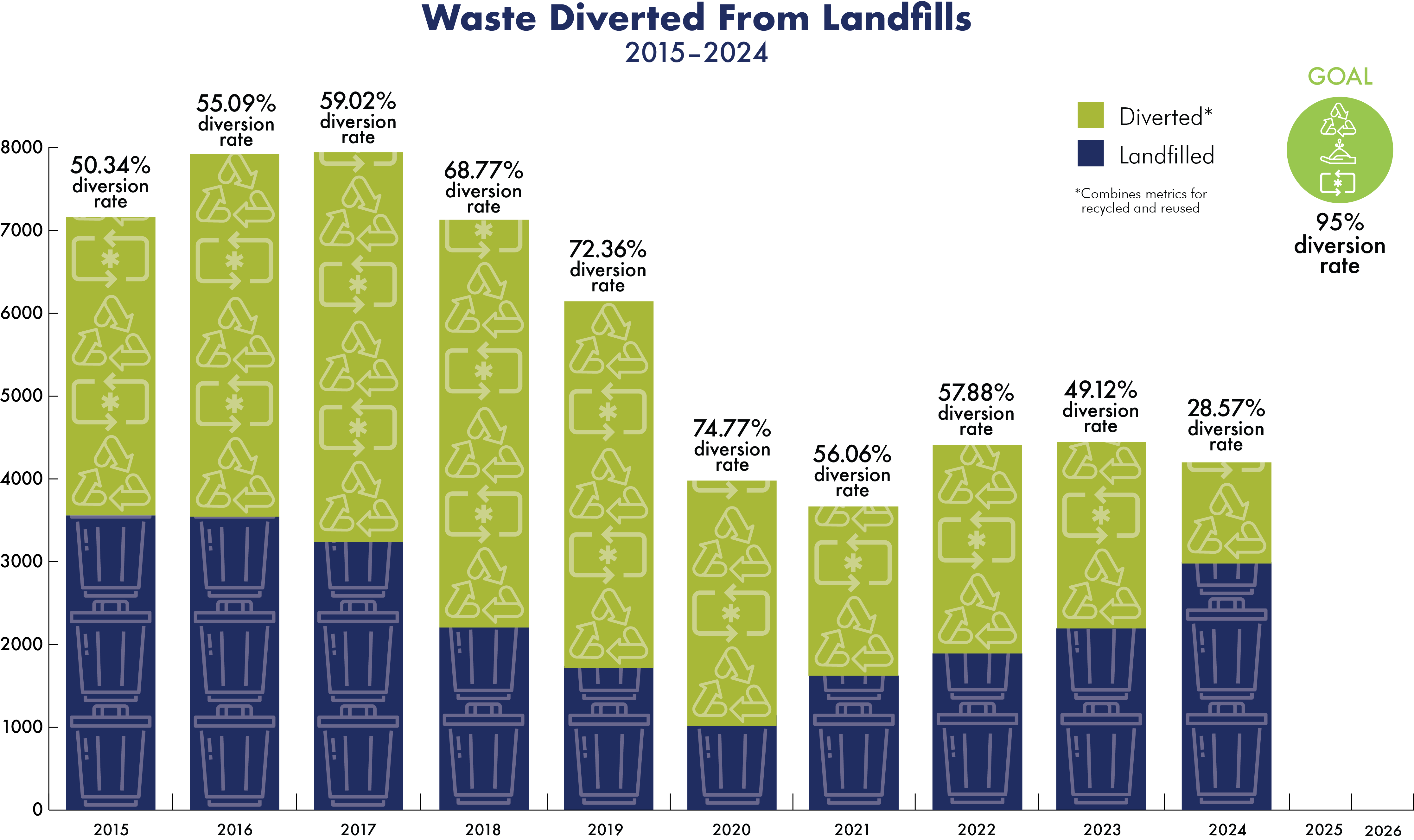Making progress towards our goals
Emory is creating a culture of sustainability, and it shows. Since 2005, Emory has reduced its energy and water consumption, and increased the amount of sustainable and locally-sourced food served in Emory Dining locations. The Emory shuttle system transports millions of riders annually using biofuel from recycled cooking oil, and the WaterHub continues to win awards for its water conservation and recycling. And this is just the beginning. Emory is making a difference in Atlanta and beyond, thanks to the strength of its sustainability-focused community.
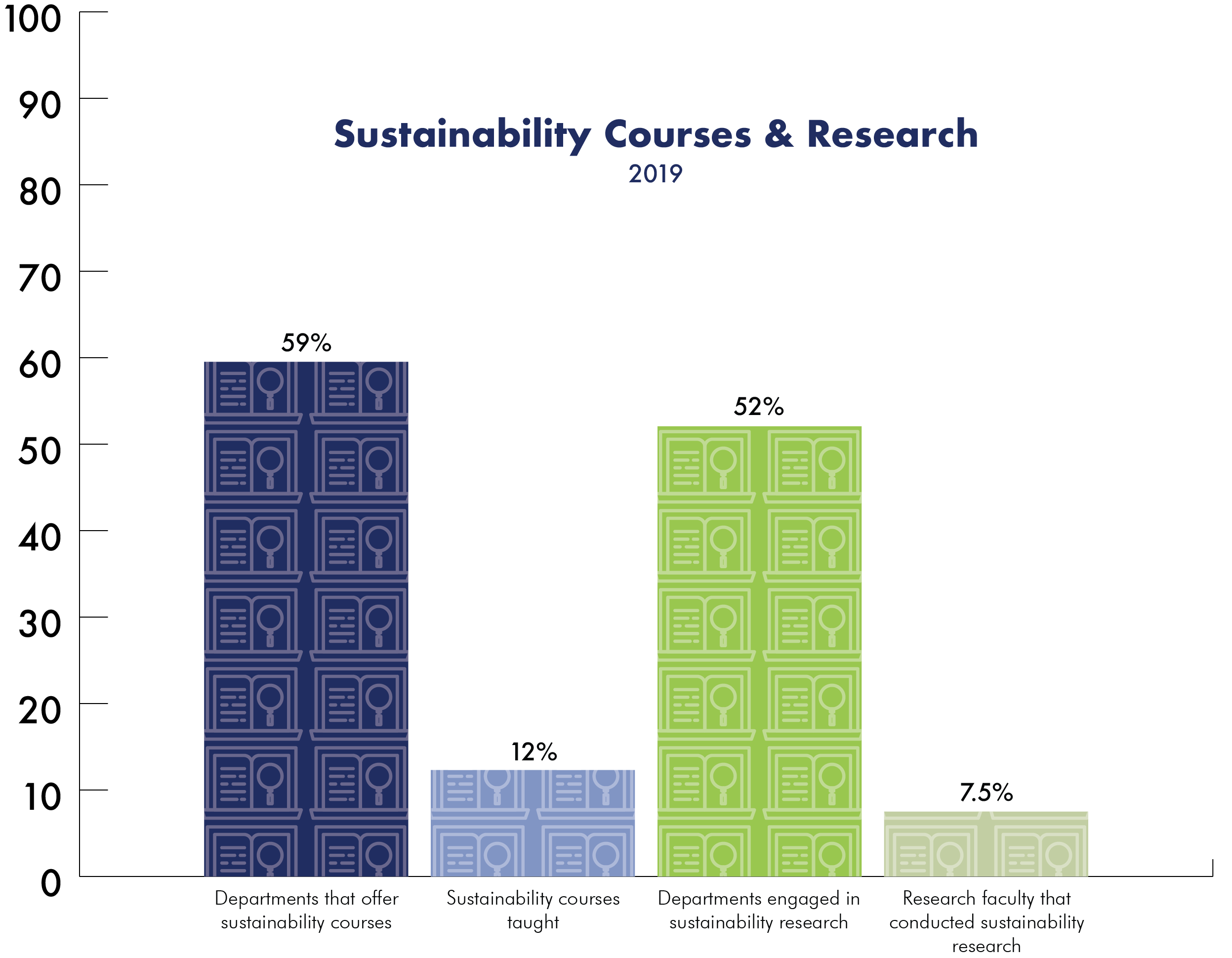 Click image for a larger view
Click image for a larger viewSustainability in Academics and Research
Every three years, Emory conducts an inventory of University courses and research that include sustainability as a component, as a way to measure how sustainability concepts are integrated throughout the curriculum. As more departments offer sustainability courses and conduct sustainability research, Emory’s approach to sustainability education becomes more comprehensive and diverse.
 Click image for a larger view
Click image for a larger viewSustainable Built Environment
Emory is a leader in its commitment to sustainable buildings with over 4.25 million gross square feet of space in 40 LEED certified University and Healthcare buildings. Emory’s 2025 Vision adds LEED Silver minimum certification for all renovations, and encourages exploration of other sustainable building standards like Living Building, Fitwel, and WELL.
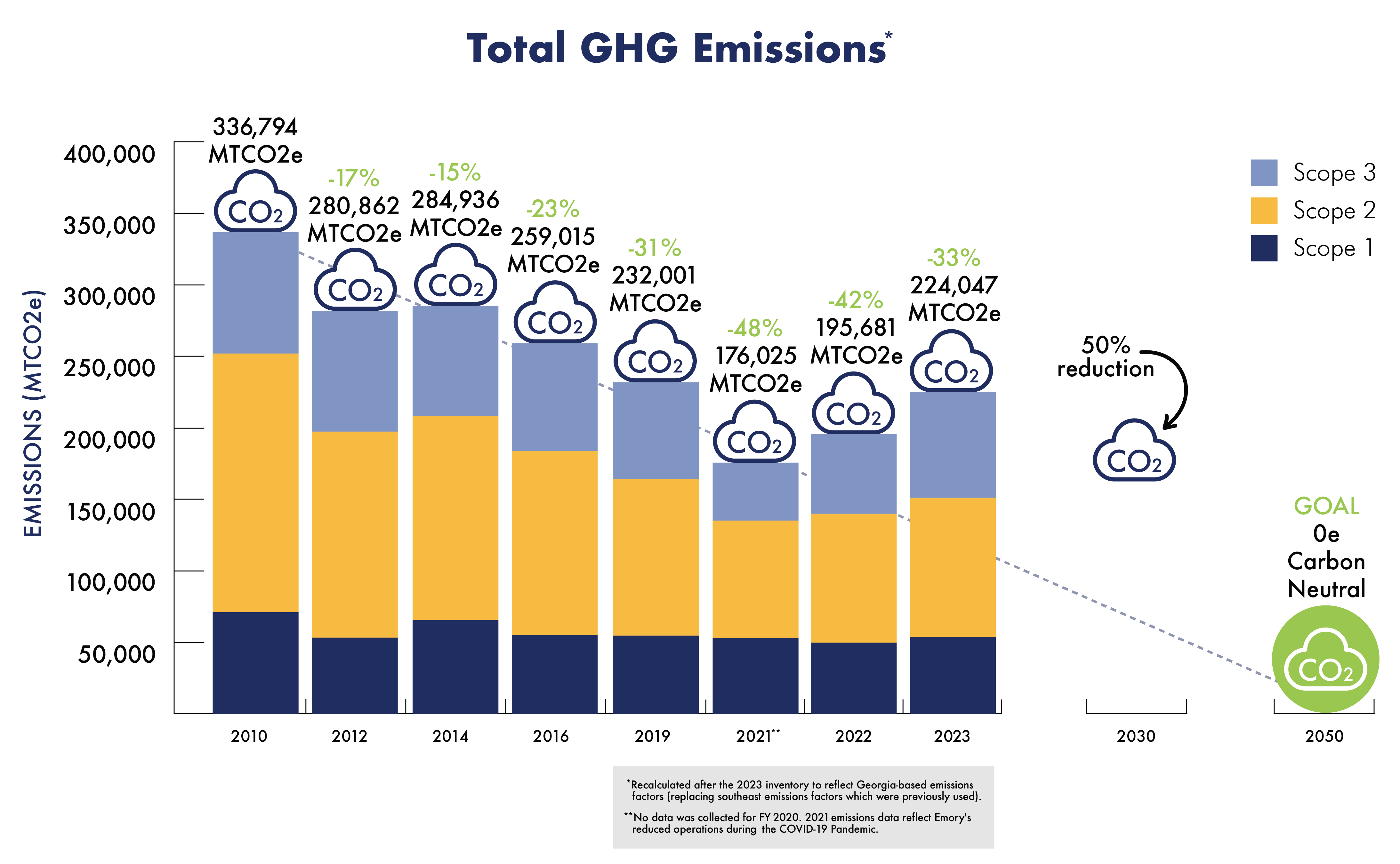 Click image for a larger view
Click image for a larger viewEmory Greenhouse Gas Emissions
Emory’s goal is to reduce total GHG emissions 50% by 2030 and reach net zero emissions by 2050, from a 2010 baseline. Our inventory includes direct emissions from Emory owned or controlled sources (scope 1), indirect emissions from purchased off-site electricity (scope 2), and all other indirect emissions (scope 3). Emissions are measured from University and Healthcare buildings on the Druid Hills campus.
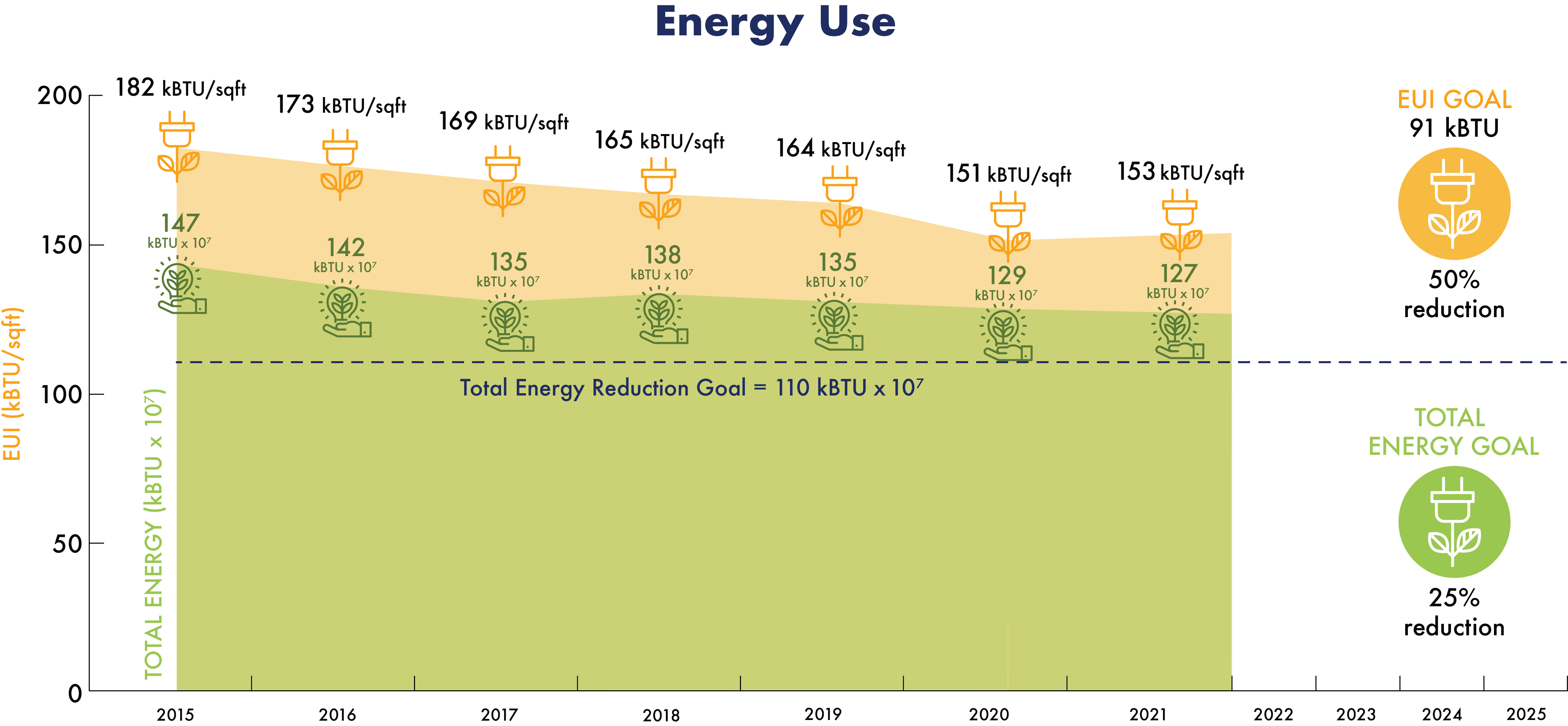 Click image for a larger view
Click image for a larger viewEnergy Use Reduction
Emory’s 2025 Vision goal is to reduce energy use per square foot by 50% in University buildings and total energy consumption by 25%. This graph shows progress toward the University goal in buildings on the Druid Hills and Oxford campuses.
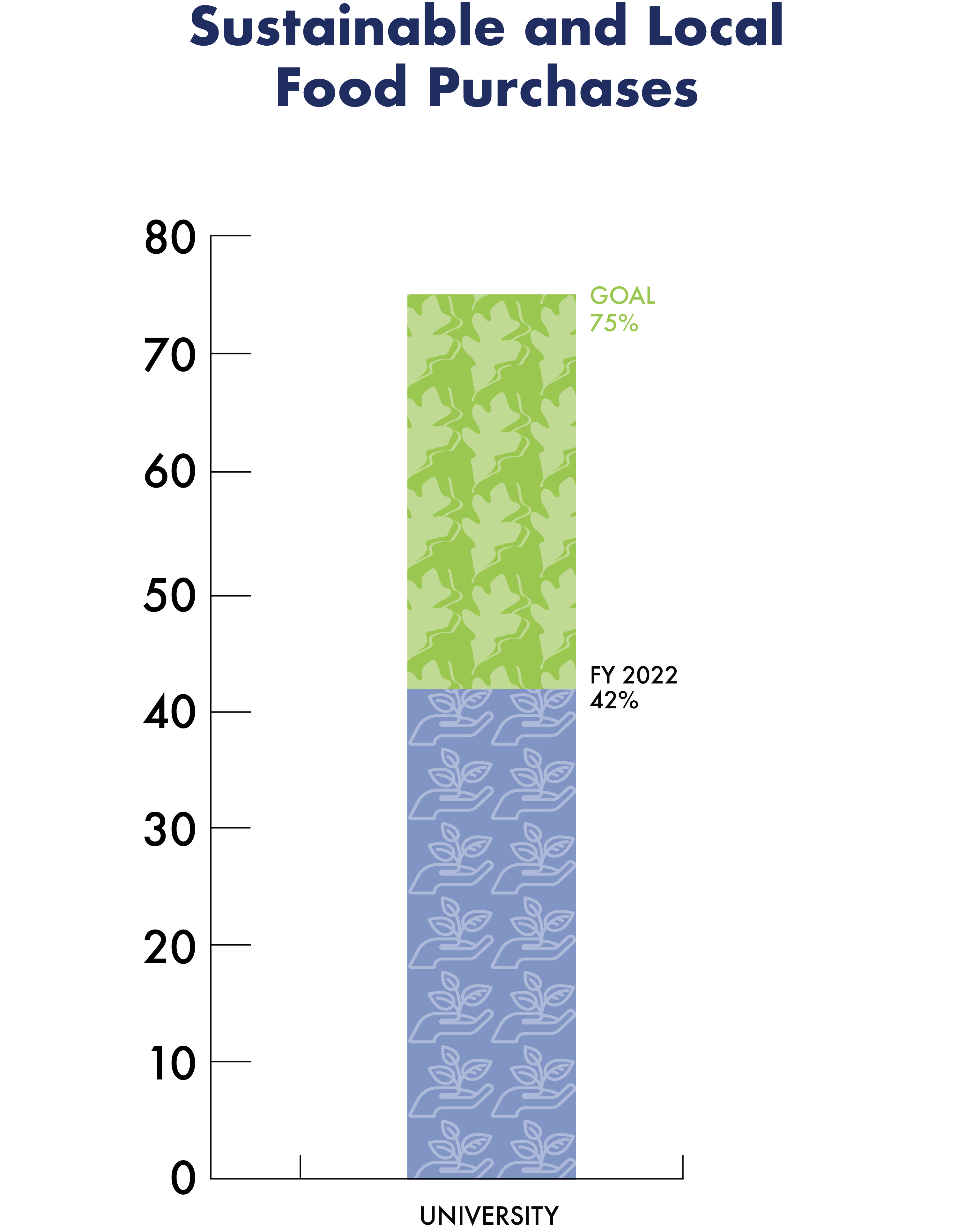 Click image for a larger view
Click image for a larger viewSustainable Food Systems
Emory’s goals are for 75% of the food purchased by the University and 25% of food purchased by Healthcare to be locally or sustainably grown by 2025. In 2019, Emory University’s Atlanta campus reached 36%, Oxford College reached 39%, and Emory Healthcare’s hospital average reached 13%. Each of Emory Healthcare’s hospitals that tracked sustainable and local food purchases report the following figures for 2019:
- 21% Emory University Hospital
- 17% Emory Johns Creek Hospital
- 12% Emory University Orthopaedic & Spine Hospital
- 7.5% Emory Wesley Woods Hospital
- 7% Emory University Hospital Midtown
- 5% Emory Saint Joseph’s Hospital
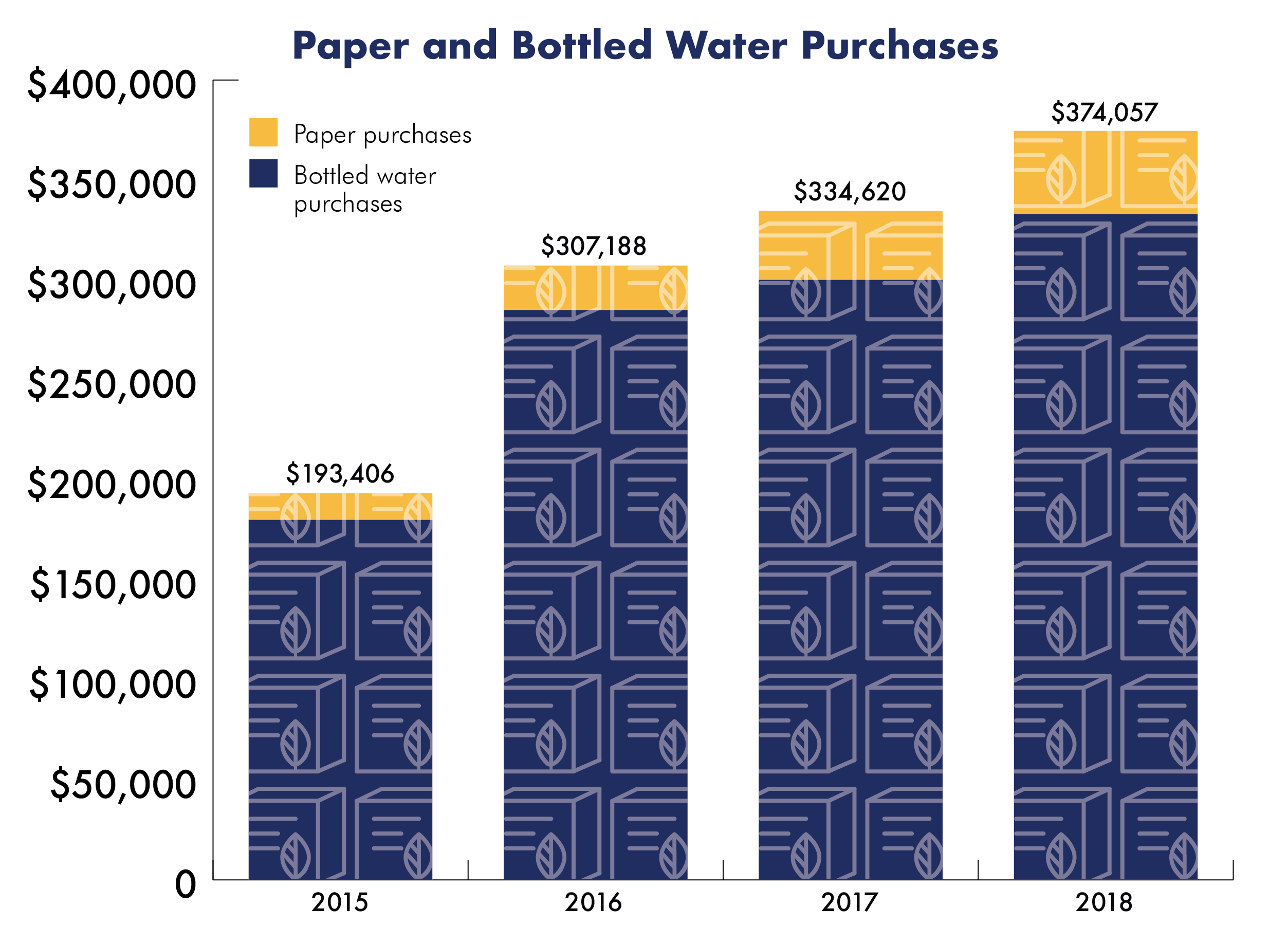 Click image for a larger view
Click image for a larger viewSustainable Purchasing Behaviors
Emory encourages employees to model the institutions commitment to sustainability by making purchasing decisions that positively impact social, economic, and environmental systems. Two measurements that indicate sustainable purchasing behaviors are amounts spent on bottled water and paper at Emory, both of which have increased annually since 2015.
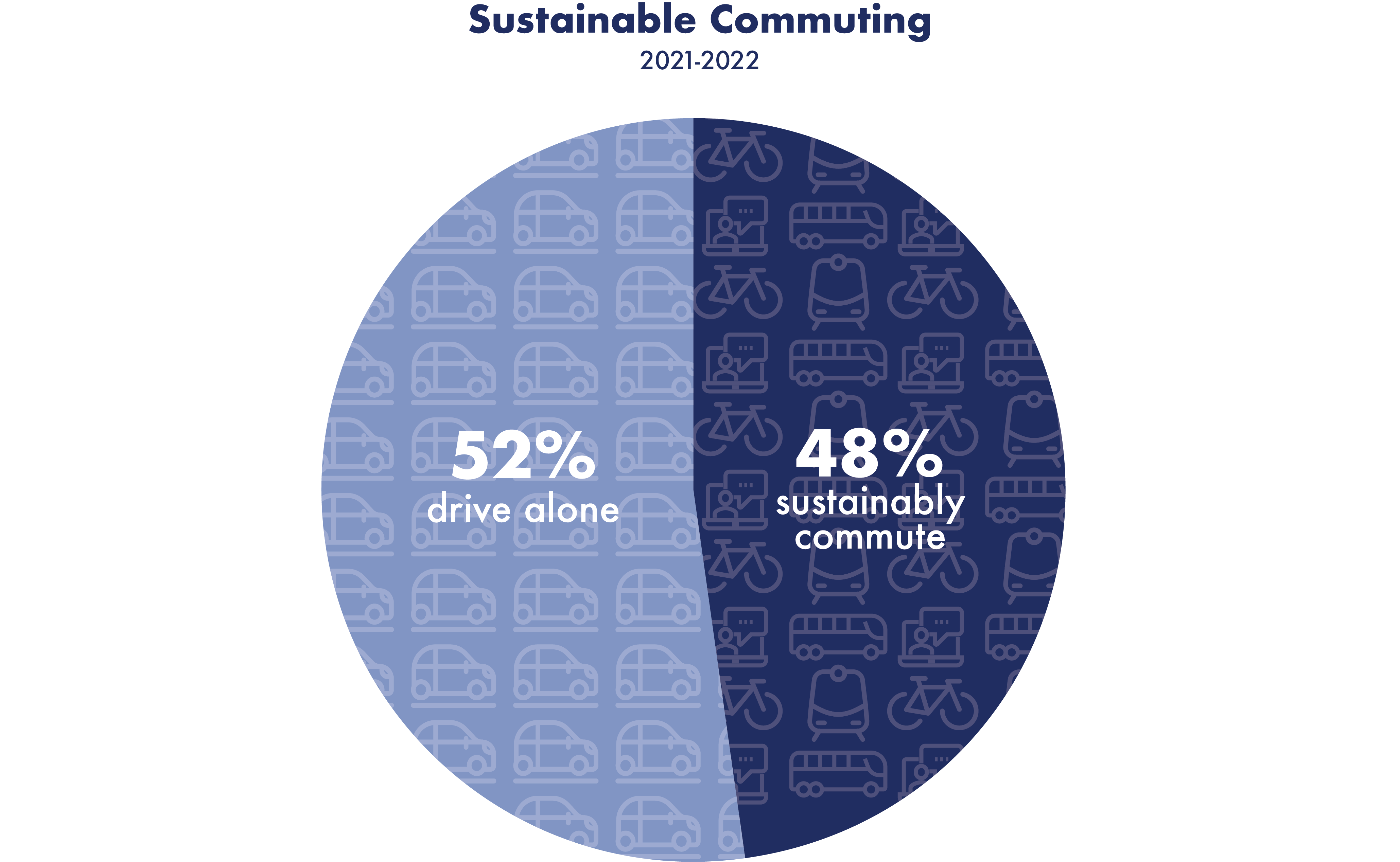 Click image for a larger view
Click image for a larger viewSustainable Commuting
Sustainable commutes include teleworking, walking, bicycling, carpooling, vanpooling, and riding transit.
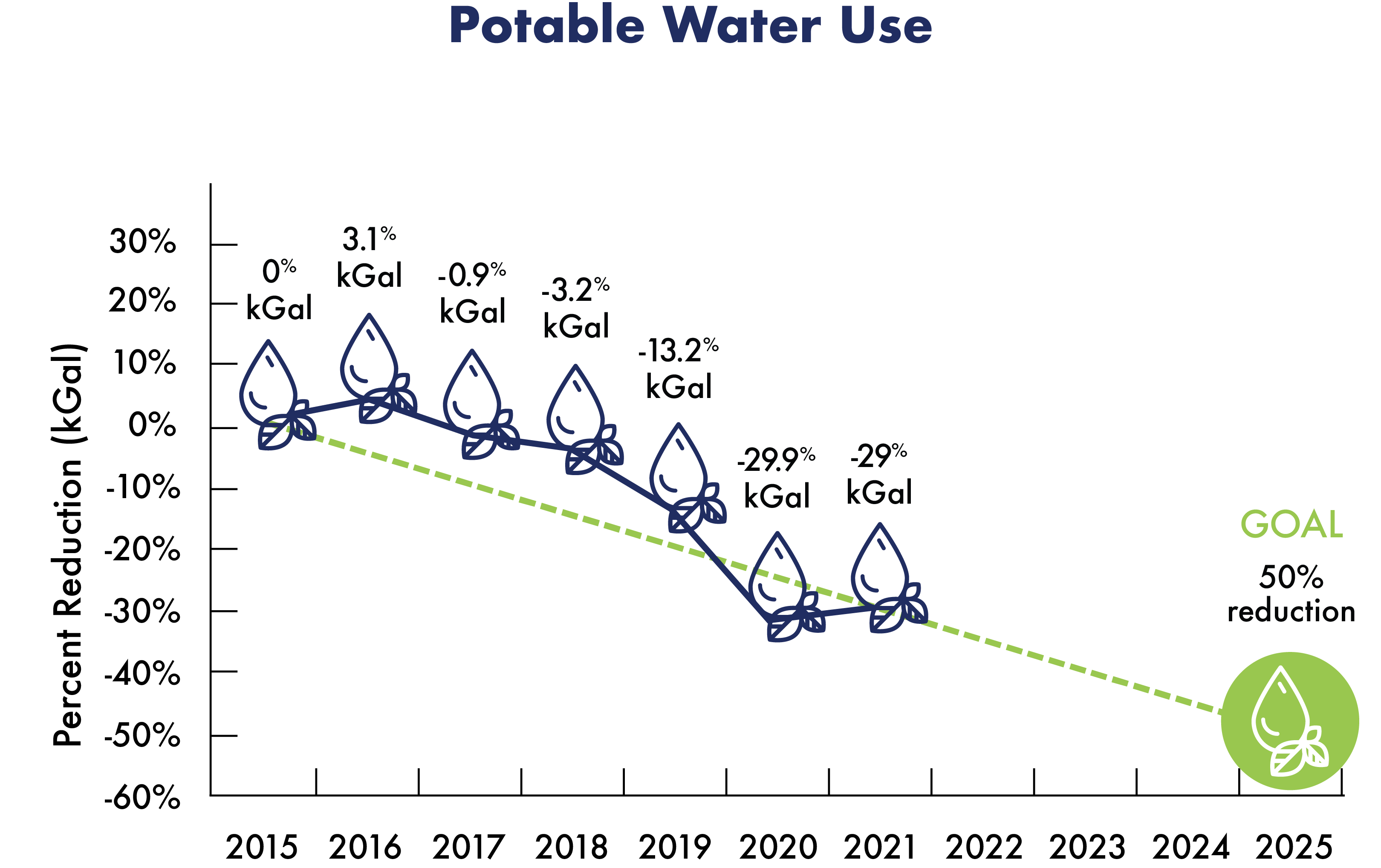 Click image for a larger view
Click image for a larger viewPotable Water Reduction
Emory’s goal is to reduce our potable water consumption 50% by 2025. We do this by reducing total water consumption and utilizing reclaimed grey water from the WaterHub for cooling tower make-up, irrigation, and some toilet flushing. Explore our Water Initiatives for more information.
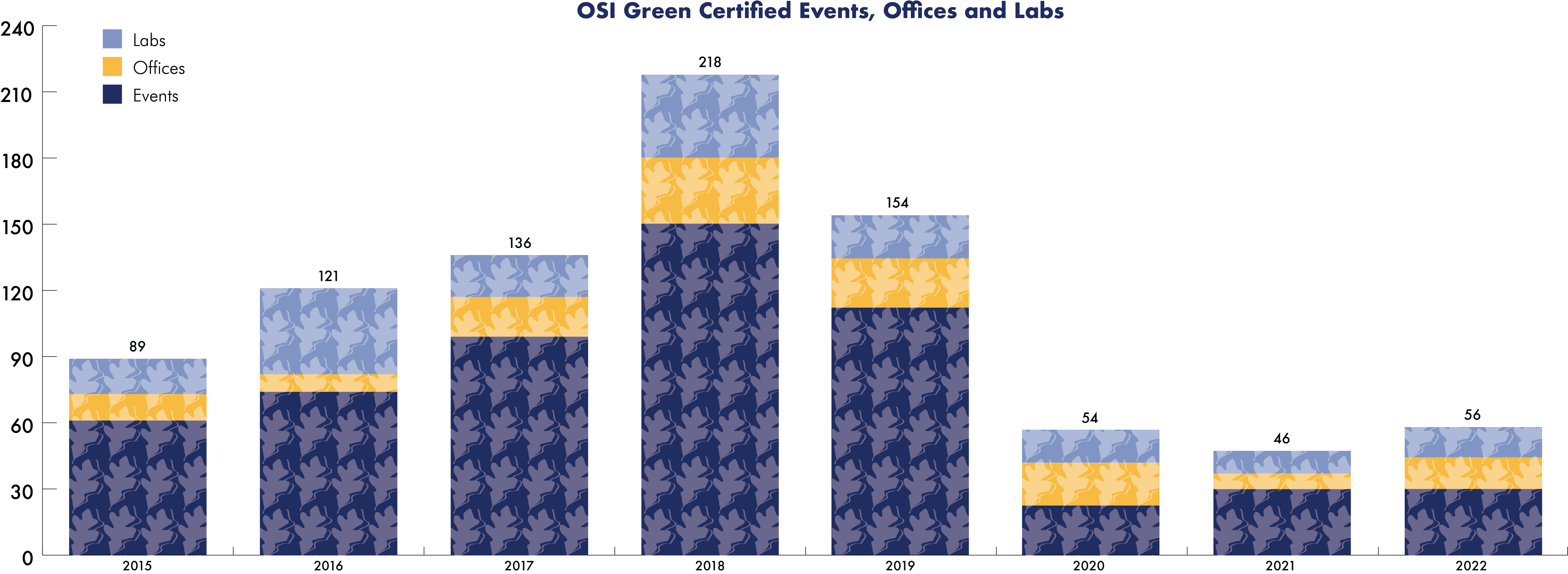 Click image for a larger view
Click image for a larger viewCertified Sustainable Spaces at Emory
Individual offices and laboratories can contribute to a more sustainable Emory by committing to sustainable actions inside of units and achieving Green Offices and Green Labs certification, and planning and executing Sustainable Events. Join the growing number of participating units and help Emory achieve its goal for all events to produce zero landfill waste by 2025!
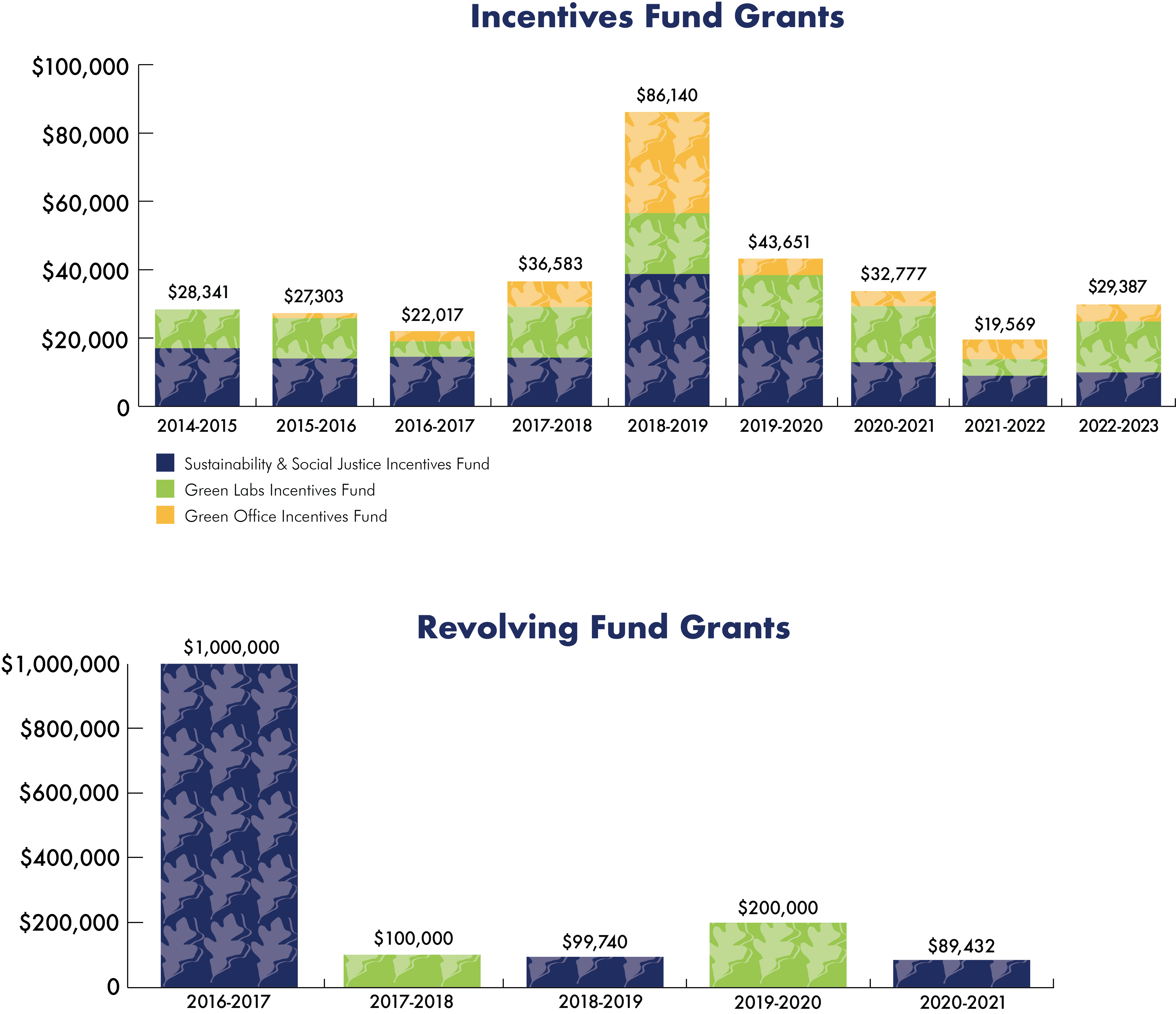 Click image for a larger view
Click image for a larger viewFunding Support for Sustainable Innovations
Emory’s faculty, staff, and students have the best ideas for implementing sustainable innovations in work spaces, classrooms, outdoors, and even behind walls! By supporting these ideas through funding, Emory reinforces the notion that everyone can make a difference on campus and in the community.

